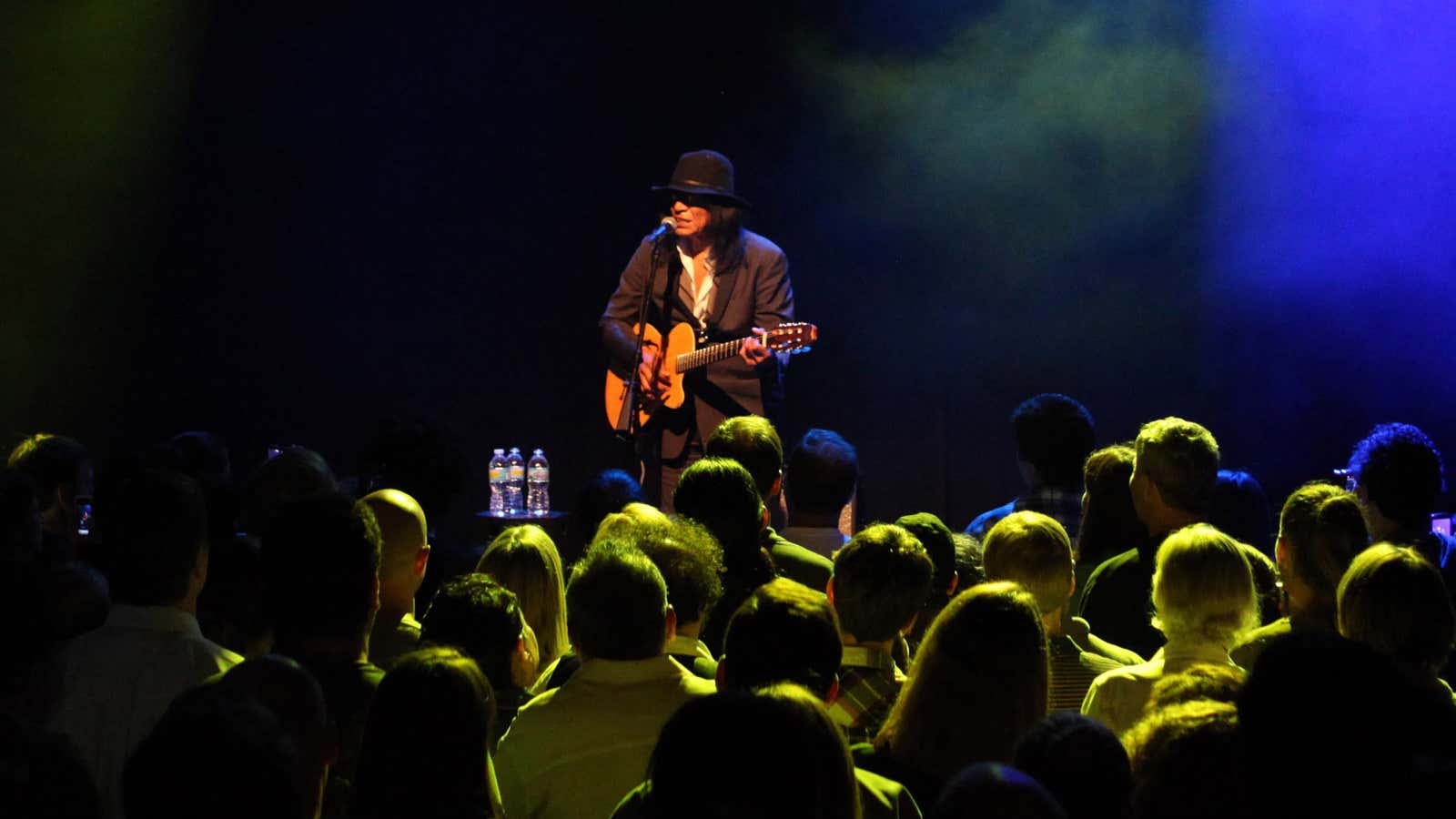Sixto Rodriguez was once one of South Africa’s most beloved musical stars, a mysterious icon who was unknown to the rest of the world. But now that his life and career have been chronicled in the Oscar-nominated documentary Searching for Sugar Man, Rodriguez doesn’t belong to us South Africans any more.
Rodriguez is the musical legend that almost never was. He disappeared from the music scene when his albums tanked in America in the late 1960s, only to become a grassroots favorite in South Africa in the 1970s and ’80s, when the country was isolated by apartheid and subject to trade embargoes.
This month, he’s back performing across the country. Three days after his last show in Johannesburg, he will be in Los Angeles for the Oscars. If—and many critics say, when—the documentary wins, he is sure to achieve the recognition in his home country that slipped by him almost 40 years ago.
Arguably, it’s already happening. Since its release last year, Searching for Sugar Man has been inspiring standing ovations from audiences in the US. At Sundance, it won both the jury and the audience award prizes. Rordriguez is on the press circuit in America and Europe, doing dozens of interviews a day and performing on the Late Show with David Letterman.
But long before they discovered him, some South Africans already had. The enigmatic figure developed an almost cultish appeal in a country then divided by apartheid. My friend, Deidre Donnelly, now 34, says owning Rodriguez’s album was representative of “a little deviant, counter-culture. It made us look at her in a different way. If you had it it confirmed that you were not mainstream.”
Originally, Rodriguez was signed in the ’60s in a bar of his hometown in Detroit by two big-time producers featured in the documentary. “Dylan was mild” compared to this guy, they said. They signed him and released two albums, Cold Fact and Coming From Reality, and were surprised when both sank. Some say audiences were not ready to accept a Mexican-American. Others say his shyness on stage turned off fans, as did his propensity for performing with his back to them.
In the face of failure, Rodriguez abandoned music, and spent most of his life as a laborer struggling to make ends meet. But on this side of the world, in a South Africa divided by race, his music was becoming the anthem of a generation, especially among white liberal South Africans, outselling more than Elvis or the Rolling Stones with an estimated half million to 1 million albums. He never received a cent in royalties. Notably, liberal white South Africans, while not as victimized as the majority black population, also felt the weight of the state’s repressive regime and related to his lyrics. Songs referencing “Mary Jane” and asking “I wonder how many times you’ve had sex” were quite rebellious, indeed.
But what makes the story even more fascinating is that even those South Africans, in a country under international sanctions, knew little about him. Through rumors, they believed he had committed suicide by burning or shooting himself on stage. It was only in the 1990s that two men in Cape Town, Stephen Segerman and Craig Bartholomew, in the 1990s, with the help of the internet, set out to find out more about the enigmatic man of their formative years. To their surprise, they found him alive, still in Detroit. They brought him to South Africa in 1998 for his first concert, a grand, emotional reception. He came back many times since, all the while unknown to American audiences.
So it was a bittersweet moment this past weekend, on Feb. 9 in Cape Town, to watch this old, awkward man, clad in black, late in life now, performing for the audience that brought him to this pinnacle. Those who grew up on his music sang along to every word. “South Africa loves you, Rodriguez!” and “Cape Town loves you, Rodriguez!” were shouted in between the awkward silences. By today’s standards and to those unfamiliar with him, he seemed unpolished and a bit unrehearsed. But the audience did not care.
Rodriguez seemed uncomfortable with all this adulation, and in the few instances he spoke, he came back with what sounded like well-worn wisdom: “You want to know the secret of life,” he asked. “It is to breathe in and out.
“And the mystery of life? You never know when it is going to end.”
Like in that first concert in Cape Town, where he thanked the audience for keeping him alive, he told fans how the Oscars are secondary to being here with them. For some, emotions gave way to belligerence, like the man at the front who kept signaling and eventually resorting to threats: “Fucking stand up! This is a legend!”
Now, though, he is on his way to becoming a star in America, with bigger audiences and well-oiled, star-making machinery. There’s hints of that on Letterman, where his awkward act is masked by an orchestra.
What is to be lost on the eve of Rodriguez’s tradeup to stardom, for him and his original audience? Will the message still resonate for his audience? Will he be back again soon? For a long time, South Africa was the best and only recognition he got. Comparatively, even his fans fill venues here, they are a small number. In a candid moment during the concert, he said, “I just want to be treated like an ordinary legend.” Maybe here, but is there such a thing as an ordinary legend once you make it in America?
